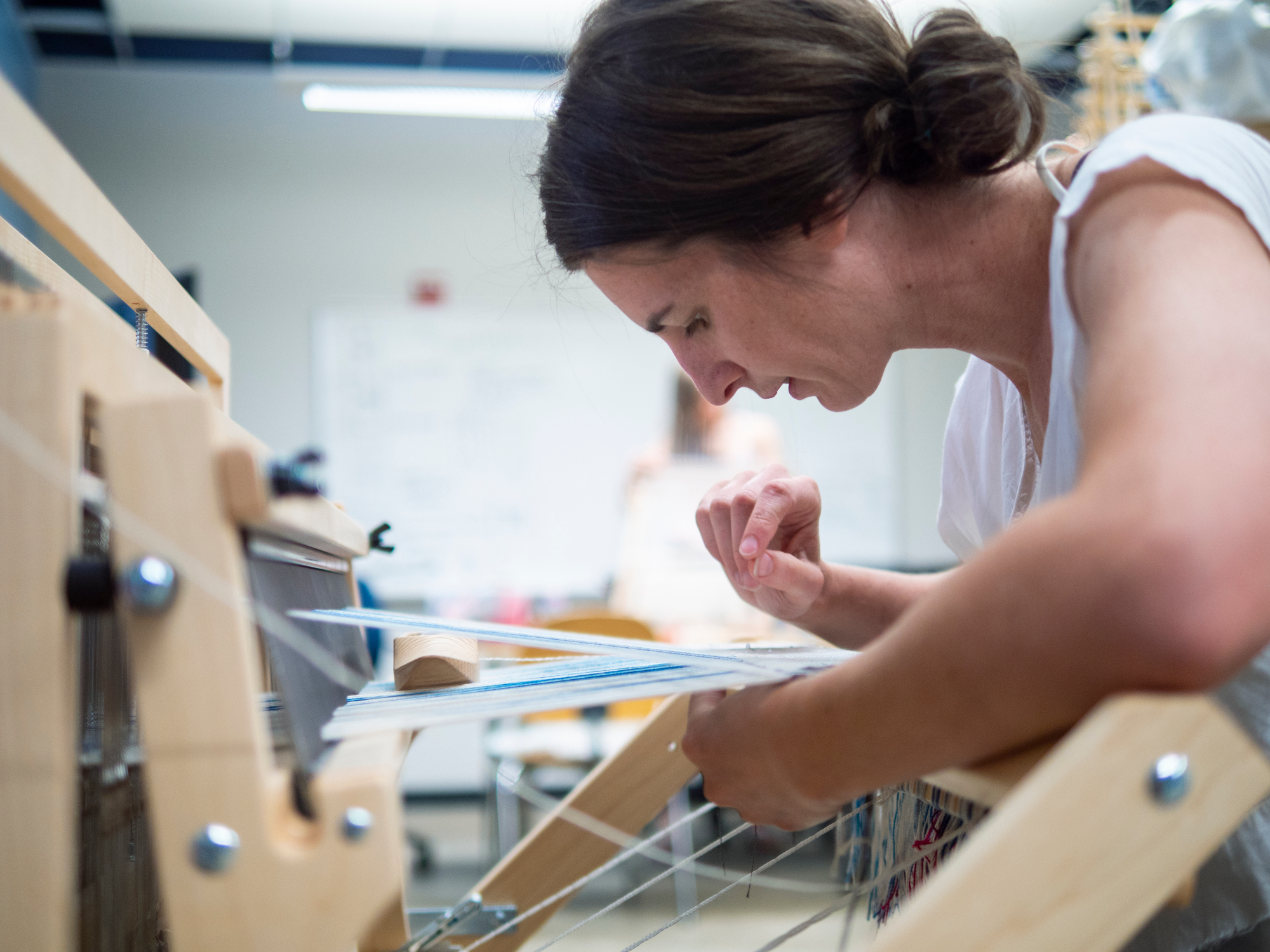As the first speaker in the online Algorithmic Pattern Catalogue (alpaca) talk series, Laura Devendorf shared her web-based, free/open source AdaCAD system. Designed to be a drafting tool for weavers, AdaCAD could also be viewed as a visual programming language for making generative art within the extremely rich constraints of frame and jacquard looms. Its practical use extends not only to creating visual textile designs, but creating electronic circuits and sensors from the three-dimensional warp-and-weft structures of weave. In this talk, Laura introduced ADACad and some of the projects created with it, and will take us through trying the software out for ourselves. You can watch the archive of the live stream below:
If you have any feedback on the session, please fill out this form.
Biography
Laura Devendorf is an artist and researcher who questions relationships between technology and culture by playfully subverting and reinterpreting categorizations of “machine” and “body.” Her work presents alternative understandings of technology that draw heavily from feminist techno-science, trading notions of efficiency for engagement, control for humility, and individualism for cooperation and care. Her work takes the form of garments and tapestries with embedded electronics, open-source software, and mixed-media systems. Devendorf is an assistant professor in the ATLAS Institute and the Department of Information Science at the University of Colorado Boulder, where she directs the Unstable Design Lab, and holds a courtesy appointment in the Intermedia Arts Writing and Performance PhD Program. She received her PhD at the UC Berkeley School of Information.
Previous talks by Laura
Fabricating (Smart) Textiles – Computational Design, Craft, and Radical Possibility (Symposium of Computational Fabrication, 2019)
Designing Not Knowing (FabLearn, 2020)
Art && Code: Homemade (2021)
